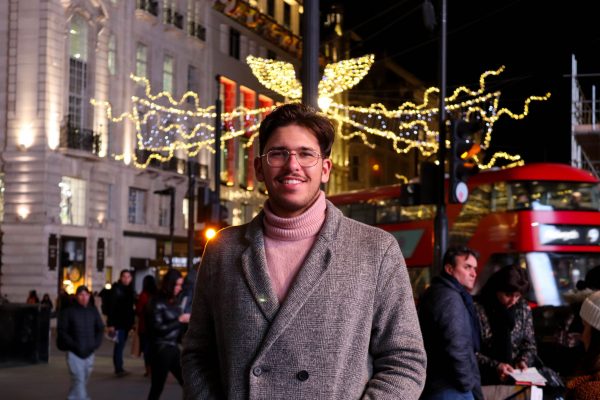
Justas Valantinas
Eastern Europe and Russian Studies student
You started studying at VU TSPMI back in 2016. Why did you choose to study at the Institute?
My way to the Institute was straightforward. In school, I always excelled at history and geography for as long as I can remember, I was always interested in processes happening in Lithuania and around the world. In later years of high school, I started gaining a bigger interest in politics. I wanted to understand and analyze the processes while thinking that one day I could also contribute to the political world. I felt I wasn’t mature enough to study abroad and in Lithuania, the Institute was my only preference. I was fascinated by the programme’s versatility. It gives students a chance to find out what their interests are. The Institute creates an image of being a dynamic and innovative learning facility.
You spent one semester studying at the Rey Juan Carlos University in Madrid as part of the Erasmus+ program. Why did you choose this university? What are the main differences between studying between Lithuania and Spain?
I chose this university for a simple reason. I have always been interested in Spanish culture and its sport. I also wanted to experience life in the big city, where are so many opportunities and significant cultural and sporting events happen every week. I won’t lie, I also wanted to experience the warm climate during that semester. The decision to choose Madrid was a very logical one – it’s the heart of Spain with a rich history and a vast amount of cultural heritage. Unlike other Spanish cities, Madrid has not yet become the hotbed for tourists and for the most part has kept its authenticity, so I knew that the accommodation prices were affordable to me and the everyday life would be as Spanish as possible.
The main difference between studying in Lithuania and Spain is that at VU TSPMI the students are more welcome to express their thoughts and opinions using discussions. In Spain, apart from a few instances, the studying was based on lectures. So lectures became a bit routine. Also, our Institute’s administration works more operatively and will always answer students and help solve all the problems. In Spain, the communication with the administration was very chaotic.
You took part in the LKL (Lithuanian Basketball League) academy project. What experiences did you get there?
I have been watching and playing basketball since childhood. So the project was a great opportunity to become a part of the basketball world, be closer to the players. I am happy that I had a chance to learn more about one of the most professional and growing sports organizations in Lithuania. During the project, I was part of the communication group. I had a chance to take part in the organizing of a holiday basketball game in Pasvalys and contributed to the creation of the communication plan of the Pasvalys basketball club (BC Pieno Žvaigždės). It was a challenge to get the result while having a small budget, coming up with innovative ways to attract people to the project. All in all, during this project I saw and realized what a job that requires attention and creativity is.
You are currently studying the Eastern European and Russian Studies MA programme at the Institute. What are the main differences between the BA and MA programmes? How hard is it to study an English language programme?
I haven’t seen many differences between the BA and MA programmes. The lectures and seminars are taking place the same way as in the BA programme. The main difference is that the MA programme is very concentrated in the Eastern Europe region. Studying in English isn’t a problem because the information is delivered clearly and it’s an opportunity to remember my English skills. Currently, my life is a bit hectic because I have recently started an office job, so time planning and adaptation to an intensive schedule has become a real challenge. But I am happy that the studies help me to not get stuck in a set routine and they brighten up my day.
There are a lot of foreign students in the Eastern Europe and Russian Studies MA programme. Why do you think the programme is attractive to foreign students?
For the last decade, our country has taken the front foot approach in the region’s politics, the political leaders have tried to highlight the problems being faced in the region. I think students need to learn about the region from within it, they need to be close to the events. I am certain that that the programme is popular because the students have a chance to work closely with the region’s academics and they can learn about our region’s history and culture.
What do you do away from your studies? How does your free time look like?
During my free time, I like to watch basketball and football games, if I can I visit the home games of Žalgiris Kaunas or Klaipėdos Neptūnas. The atmosphere in the arena brings back that childish emotion and happiness. I love to spend my free time actively. When I go back home to Klaipėda I mostly spend time riding my bike near the sea. Last summer I started to learn to kite and wake-board, I can’t wait to be back on the board this summer. Finally, I’m happy that I’m surrounded by great people and I appreciate all the time I spend with them.
Finally, maybe there is something you would like to wish upon the VU TSPMI community?
I think the community should not be afraid to dream and seek their highest ambitions.







